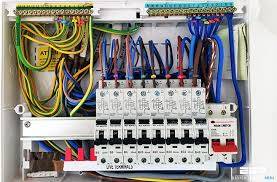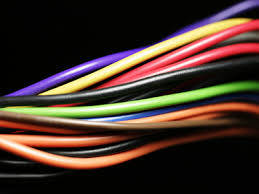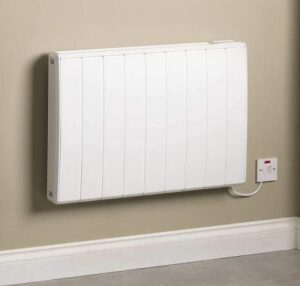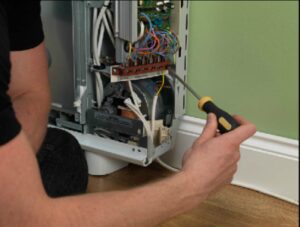During winter time the goal is always to make sure that your house is as warm as possible. To make sure that not only is your family as comfortable as could be but so is everyone who decides to pay you a visit. To create an environment that inhabits rather than limits, especially in the winters when even getting out of bed can be a tough task.
This need for warmth and comfort is agreed upon by all but the issue of costs arises. We may get carried away by installing inverters and gas heaters that heavily drive up our bills. Additionally we want to make sure that we are as green as possible since the constant burning of gas and the carbon emissions released by inverters can quite hefty.
What is the solution then, you may ask? What can you do to keep yourself warm all the while ensuring that are you being cost efficient? What is that one thing that will deter you from contributing negatively to the environment? Your answer lies with electric storage heaters.

What are they?
The difference lies in the word ‘storage’
Electric storage heaters uses electricity to heat up elements (usually internal bricks). When these elements heat up, they produce thermal energy that these heaters store in a highly dense insulating material which they later use to heat your house.
What makes them so special?
The first thing you can expect your electric storage heater to give you is easy installation. You can summon any electrician near you or even call mobile electricians who will help you get the job done in a matter of minutes.
Additionally, perhaps, the most unique quality of these heaters is the fact that they were created for individuals who use off-peak electricity. Off-peak electricity is the electricity that is available at hours, usually overnight, when the demand for electricity is at its lowest. It is supplied through the national grid and requires a separate circuit made especially for off-peak hours.
Due to the fact that the electricity you are using is off-peak, it is drastically cheaper and therefore more cost efficient. The only one time cost you may incur is at the time of purchase. It is also important to note, the better the quality of the heater the cheaper it is to maintain. So look at it like a long term investment.

Types of electric storage heaters
While the base concept of these storage heaters remains the same, there are five very basic versions of them:
- Manual
Manual electric storage heaters are considered to be the most basic form. They have two control settings; input and output. You can decide how much energy you want these heaters to store through the input setting. The output setting allows you to control the amount of energy they are to release. They continue running unless manually switched off as well.
Their price ranges from 200 to 400 pounds. The following are available in the market:
- Dimplex XL
- Elnur SH
- Creda TSR
- Sunhouse SSH

Automatic
As the most popular type of storage heater, the automatic ones help you shave off 15 percent of your energy bills if used. Much like the manual storage heater, these too have input and output settings. The only difference is its adaptability to changing weather conditions due to the installed thermostat. Thus is requires no manual intervention and can change according to your needs.
Their price ranges from 250 to 500 pounds. The following are available in the market:
Dimplex XLS
Elnur SH
Creda TSR
Sunhouse SSH
- Combination
This type of storage heaters are a combination of storage and convection heaters that require a constant supply of power. Usually used for large and busy rooms, the convectional part of the heater provides that extra warmth in times of need.
Their price ranges from 300 to 600 pounds. The following are available in the market:
- Dimplex CXLS
- Sunhouse SSH

- Fan-assisted
Considered to be a more advanced model of storage heaters, they are part of the combination heater. It is considered to have drastically improved insulation and can use up to 22 percent less energy. It is even considered to be 27 percent cheaper to run. It incorporates a silent fan that blows out heat insuring that not only is it cost efficient but also highly effective.
Their price ranges from 500 to 800 pounds. They following are available in the market:
- Dimplex FXLi
- Creda TSF Turbo
- Dimplex VFM
- Quantum
The last and perhaps most advanced and new type of storage heater is the quantum. It built upon the developments of the fan assisted storage heaters and is considered to have user friendly interface. It comes with an LCD control panel that allows you to adjust it to your lifestyle. IT offers a variety of profiles like ‘holiday’, ‘landlord’ and even has a child lock. Its developed algorithm allows it to change and learn from changes made so that it can adapt to your every need and changing temperature requirements.
Like the fan-assisted storage heater, their price ranges from 500-800 pounds. The only manufacturers are:
- Dimplex
- Creda
- Heatstore
The use of storage heaters is highly encouraged in regards to comfort, by electricians, and by the government as well. This is because they are considered to be more fuel efficient as they convert a 100 percent of the electricity into thermal energy ready to be given out.
Additionally, they prevent you from overheating your house. This is the benefit that the newer, more modern models can provide you, because of the built in thermostat. Thus they are considerable cheaper to run. This is said excluding the fact that they also run at off-peak hours which reduce your electricity bills significantly as well.
Lastly, perhaps the most important reason for you to opt for these electric storage heaters is the fact that they are more environmentally friendly. Even taking such a small measure can reduce our carbon emissions drastically as the reliance on gas, in households, and coal, on a national level, declines. It is the green way to go forward, the sustainable way!
References used:
